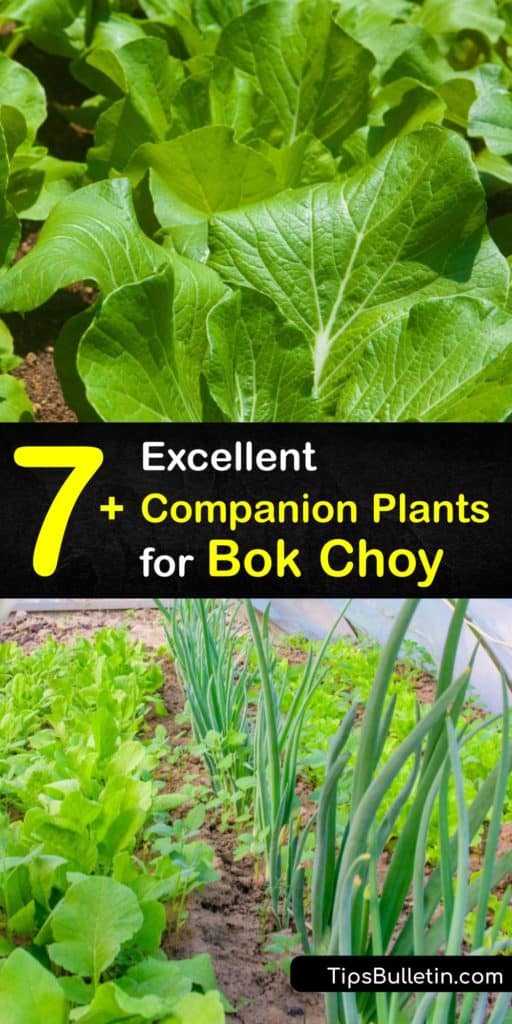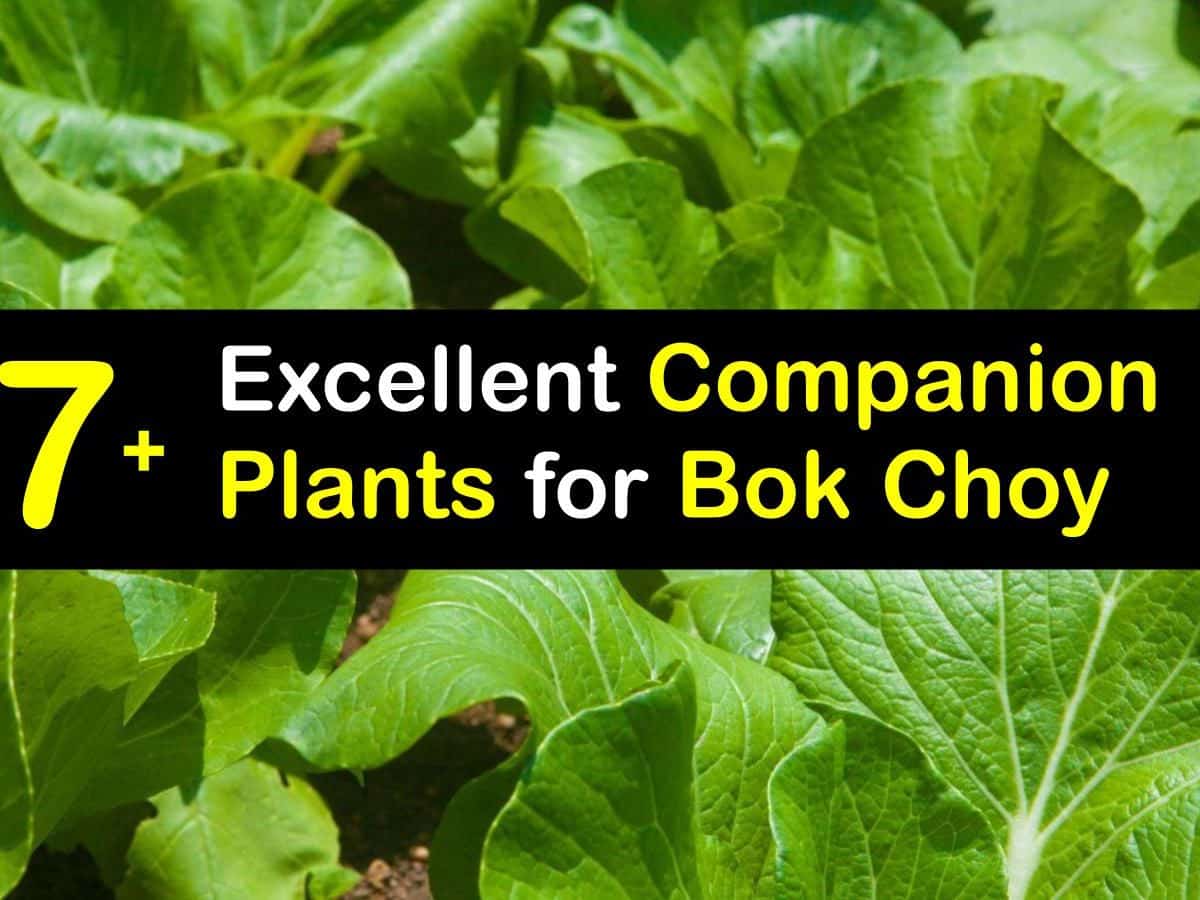Grow A Thriving Bok Choy Crop With These Companion Plants
Bok choy is a delicious and nutritious leafy green vegetable that is easy to grow in the garden. It is a member of the Brassica family, which also includes cabbage, broccoli, and kale. Bok choy is a cool-season crop, so it is best to plant it in the spring or fall.
One of the best ways to ensure a thriving bok choy crop is to plant companion plants. Companion planting is the practice of planting different types of plants together that benefit each other. There are many different companion plants that can be grown with bok choy, but some of the best include:
- Beets: Beets are nitrogen-fixing plants, which means they add nitrogen to the soil. This is beneficial for bok choy, which is a heavy feeder.
- Bush beans: Bush beans are also nitrogen-fixing plants, and they can provide shade for bok choy during the hot summer months.
- Carrots: Carrots and bok choy have similar growing requirements, and they can be planted together to save space in the garden.
- Celery: Celery can help to repel pests from bok choy.
- Cucumbers: Cucumbers and bok choy can be planted together to create a vertical garden.
In addition to these companion plants, there are a few other things you can do to help ensure a thriving bok choy crop. First, make sure to plant bok choy in full sun. Bok choy needs at least 6 hours of sunlight per day to grow properly. Second, water bok choy regularly, especially during the hot summer months. Bok choy is a thirsty plant, and it needs about 1 inch of water per week. Finally, fertilize bok choy every few weeks with a balanced fertilizer.
By following these tips, you can easily grow a thriving bok choy crop in your garden. Bok choy is a delicious and versatile vegetable that can be used in a variety of dishes. It is a great addition to any garden, and it is sure to please even the pickiest of eaters.
Bok choy is a delicious and versatile vegetable that can be enjoyed in many different dishes. But did you know that there are certain companion plants that can help to improve the growth and flavor of bok choy?
If you're interested in learning more about bok choy companions, I recommend visiting Gardenia Inspiration. This website has a wealth of information on the topic, including a list of the best companion plants for bok choy, as well as tips on how to plant and care for these plants together.
I've found Gardenia Inspiration to be a valuable resource for all things related to companion planting. The information on the website is clear, concise, and easy to understand. And the website's authors are clearly passionate about companion planting, which is evident in the quality of the content.
If you're looking for a way to improve the growth and flavor of your bok choy, I highly recommend visiting Gardenia Inspiration. You won't be disappointed!
FAQ of bok choy companion
Question 1: What are some good companion plants for bok choy?
Answer: Bok choy is a cool-season crop that grows well in full sun. It is a member of the brassica family, which means that it can be susceptible to pests and diseases. Companion planting can help to deter pests and diseases, and it can also help to improve the overall health of your bok choy plants.
Some good companion plants for bok choy include:
- Beets: Beets help to suppress pests such as aphids and flea beetles.
- Bush beans: Bush beans help to improve the nitrogen content of the soil, which is beneficial for bok choy.
- Carrots: Carrots help to repel pests such as carrot rust flies.
- Cucumbers: Cucumbers help to attract pollinators, which are essential for the pollination of bok choy flowers.
- Dill: Dill helps to deter pests such as cabbage moths and loopers.
Question 2: What plants should I avoid planting near bok choy?
Answer: There are a few plants that you should avoid planting near bok choy. These include:
- Kale: Kale and other brassicas can attract the same pests and diseases as bok choy.
- Lettuce: Lettuce can be susceptible to the same pests and diseases as bok choy.
- Onions: Onions can release sulfur compounds that can stunt the growth of bok choy.
- Potatoes: Potatoes can attract the Colorado potato beetle, which can also damage bok choy plants.
Question 3: How far apart should I plant bok choy?
Answer: Bok choy plants should be planted about 12 inches apart. This will give them enough room to grow and prevent them from competing for resources.
Question 4: How much water does bok choy need?
Answer: Bok choy needs about 1 inch of water per week. However, the amount of water that it needs will vary depending on the climate and the type of soil.
Question 5: How long does it take bok choy to mature?
Answer: Bok choy takes about 45-60 days to mature. However, the exact time to maturity will vary depending on the variety of bok choy and the growing conditions.
Image of bok choy companion
5 different images of bok choy companion plants from Pinterest:
- Carrots: Carrots and bok choy are both cool-season crops that can be planted together. Carrots help to suppress weeds, while bok choy helps to deter pests.

- Peas: Peas and bok choy are also good companions. Peas provide nitrogen for bok choy, while bok choy helps to deter pests.

- Lettuce: Lettuce and bok choy can be planted together, but it's important to note that lettuce is a heavier feeder than bok choy. So, you may need to fertilize the lettuce more often.

- Onions: Onions and bok choy can also be planted together. Onions help to repel pests, while bok choy helps to improve the flavor of onions.

- Kale: Kale and bok choy are both members of the Brassica family, so they make good companions. They can be planted together and will help to deter pests.

Post a Comment for "Grow A Thriving Bok Choy Crop With These Companion Plants"